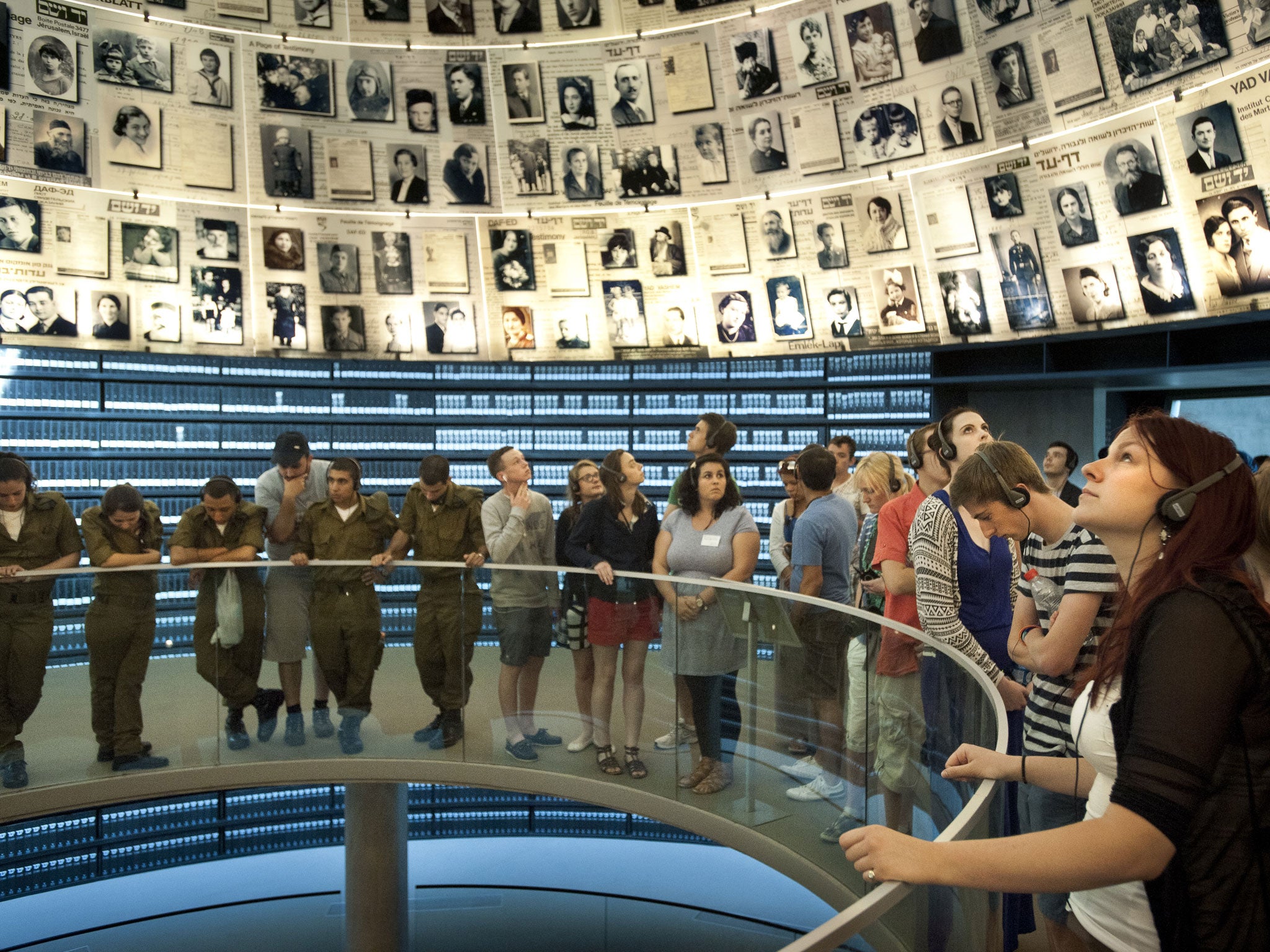The Holocaust ambassadors asked to ensure that the crime is never forgotten
How one charity is sending British children to Israel for an education in genocide that they can take home

In the early 1940s, Hannah Lewis was an ordinary young girl.
She was also Jewish. With her family, she was sent to the Nazi concentration camp in what is now Adampol in eastern Poland. Only Ms Lewis – now in her mid-seventies – and her father survived. During her time in the camp, she witnessed first-hand the murder of many people, including the fatal shooting of her own mother.
Nearly 70 years after the horrors of the Holocaust were uncovered it is impossible to imagine mass murder of such an industrial scale, impossible to imagine the evil that Ms Lewis and those like her witnessed and impossible to imagine that it could ever happen again.
But Ms Lewis is worried: “It was an incomparable crime, but it was not committed by ignorant people,” she says. “When I speak about the Holocaust to school children and other groups, people often say to me, ‘You must hate Hitler and the blackshirts who did this’. But the people who sat down with Hitler and planned it were doctors and lawyers, teachers and academics. It was well dressed.” Today in Europe, the far right is on the rise again. Groups like Greece’s Golden Dawn party, which attracts support from the victims of the country’s economic disaster and, indeed, increasingly prominent far-right groups in the UK, continue to attract support. Many are now operating across the Continent, encouraging people with their message that the malaise is the fault of immigrants and foreigners.
“The situation in Europe today is terrifying,” Ms Lewis says. “It is as if we are programmed to do the same things all over again. We seem to be like lemmings.”
The Holocaust Educational Trust, a British charity, works with people like Ms Lewis to ensure that the memory of the Holocaust is not forgotten. Last week, it sent a group of young “ambassadors” to Jerusalem to learn more about the Shoah – the Hebrew term for the Holocaust – and to spread the message when they get home.
The young men and women, whose ages range from between about 16 and 25, have all volunteered to get involved in the charity and give up their free time to listen to the likes of Ms Lewis and pass on her message when they speak at their universities and colleges.
It’s not quite what you might expect. The group The Independent met at Jerusalem’s Holocaust museum, Yad Vashem, are not Jewish, and have no family links to the tragedy.
They are, however, a bright and inquisitive bunch of young people who want to learn more about what happened.
Shaun Palmer, a 17-year-old from Manchester who is eagerly awaiting his A-level results with the hope of studying to become a vet, has invested lots of his own time in an attempt to learn more.
“During my sixth-form there was an opportunity at school to visit Auschwitz, but it was cancelled the year I was supposed to go,” Shaun says. “I went with the trust instead.
“I don’t know what I expected: I’d read a lot about it, but it’s not really something you can properly understand until you’ve been there. I wanted to apply what I’d learned to modern-day issues because visiting the camps and working with the trust gives you grounding in humanity. As much as it is was Jewish event, it was also a human event. I connect with this because the people were just normal people. You don’t have to be Jewish to want to understand it. You look at the pictures of the people who died, and think, ‘That could be my family, my friends. It could have been me’.”
Imogen Dalziel, a 21-year-old from London, has had her entire ambition reshaped by the work of the trust and her own research into the Holocaust. A recent psychology graduate from Birmingham University, she intends to go back to college in the autumn to study the Holocaust specifically.
“At school, we studied the Holocaust from reading a textbook and seeing statistics, but when we actually visited – well, it was certainly the wrong preparation: I was emotionally exhausted, I couldn’t take it all in. I got involved because I wanted to learn more. The project has changed my entire plans for my future – I’m going back to university to do a course in Holocaust studies and hopefully end up working for the trust.”
The trust’s ambition of keeping the memory alive appears to be in safe hands with the likes of Shaun and Imogen, but it has also attracted a number of celebrity backers, from Lord Browne, the former chief executive of BP, whose own mother was a Holocaust survivor, to the BBC’s political editor, Nick Robinson.
“They are certainly impressive young people,” says Hannah Lewis, who has met a number of the ambassadors and spoke to the group that came to Jerusalem last week. “I never really thought that my story was particularly incredible, but it’s all coming up again. I should have started telling it years ago.”
Subscribe to Independent Premium to bookmark this article
Want to bookmark your favourite articles and stories to read or reference later? Start your Independent Premium subscription today.

Join our commenting forum
Join thought-provoking conversations, follow other Independent readers and see their replies